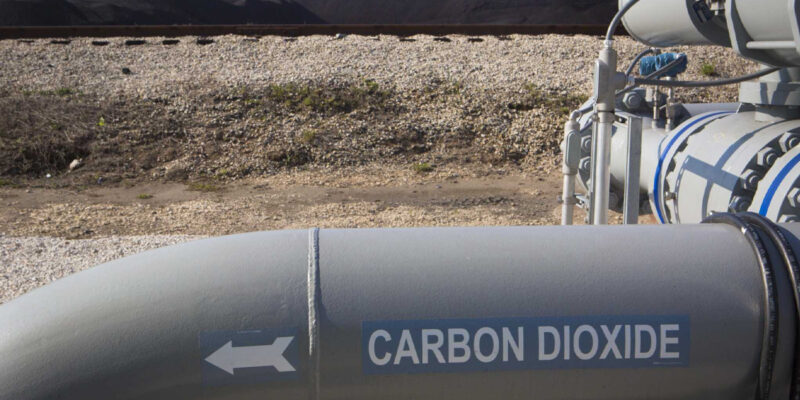Rep. Danny McCormick is certainly one of the better officials in Baton Rouge, someone who is not only willing to talk about State sovereignty but also do something to advance it, which makes us unhappy to have to criticize him. But in this case it is necessary. Rep. McCormick is sponsoring HB783, a bill that would ensure all property owners receive equal compensation if their property is taken from them for the sake of a carbon capture project. That sounds nice – equal pay for the little guy – except for one problem: He should be rejecting the entire premise the carbon capture ‘industry’ is built upon instead of trying to normalize it.
It’s fairly simple to do. There’s only a couple of key points one has to keep in mind:
- Carbon dioxide as it is normally emitted by people or machines is not a hazardous compound (it actually helps plant growth); and
- Carbon capture is an entirely phony business enterprise, being driven and funded almost completely by federal regulations and debt dollars.
But there are other considerations apart from these that are also coming to light that make carbon capture projects less than desirable.
1. Expansion of carbon capture pipelines will take up sizeable amounts of land:
The U.S. has a relatively small network of carbon dioxide pipelines, totaling approximately 5,000 miles and primarily located in the Midwest and Gulf Coast regions.
But to transport just 15% of the country’s greenhouse gas emissions, the U.S. Department of Energy (DOE) and financial industry project up to 96,000 miles of new pipelines may be required — enough to cross the continental U.S. 32 times, coast to coast.
2. Highly concentrated CO2 (which is the state it is usually in when travelling through carbon capture pipeline systems) is a health hazard, as demonstrated by a carbon pipeline rupture:
In 2020, a rupture in a Denbury Enterprises carbon dioxide pipeline in Satartia, Mississippi, led to a mass asphyxiation event, causing people to become disoriented and unresponsive, with some even losing consciousness.
As hundreds attempted to flee the area, vehicles stalled and shut down, because internal combustion engines require oxygen.
. . . When released into the atmosphere, carbon dioxide can spread over large distances, displacing oxygen and posing serious risks to people and wildlife, including sickness, suffocation and even coma and death, according to Huffpost.
Mild exposure to CO2 can have an intoxicant effect, resulting in a confused, drunken-like state and impaired cognitive abilities (hence “zombies”). Higher levels can cause bouts of coughing and dizziness, along with a panicky feeling called “air hunger.”
Advertisement
3. Underground pipelines can damage property:
Landowners like Kenny Davis and Ray Sinclair in Scott County, Illinois, have experienced long-lasting damage to their properties due to the construction of the Spire STL natural gas pipeline. They are firmly against plans to add CO2 pipelines to the mix, according to St. Louis Public Radio station KCUR.
Davis reported underground debris and erosion problems, while Sinclair faced issues with water pooling in low-lying areas of his soybean fields due to changes in the land’s slope.
4. Carbon capture doesn’t obtain the goals it is supposed to achieve:
They highlighted the numerous failed carbon capture and storage demonstration projects that have consumed billions of dollars in public funds without successfully sequestering significant amounts of carbon dioxide.
5. Big Oil only seems to be playing along to keep from being shut down completely by climate change alarmists in government (and probably to make some easy money from FedGov handouts, too):
Internal company documents reveal the oil and gas industry has privately acknowledged the complexity, high costs and additional power requirements associated with carbon capture and storage, while also recognizing its potential to prolong the use of petroleum and natural gas, according to ExxonKnews.
If Rep. McCormick wants to help Louisianans vis-à-vis carbon capture, he needs to withdraw HB783 and present a law that would ban carbon capture in Louisiana instead (as it is envisaged being used by looneybird climate change alarmists, not its legitimate uses, e.g., in extracting oil from underground). But his grandstanding over HB783 (as he has done in one of his e-mails to his supporters), as though the bill makes him some kind of populist champion, diminishes his stature as a leader in Louisiana politics, for that bill would simply set in stone the land-grabbing carbon capture system as the new normal, a system that undermines private property rights. A ban, however, would make him (or whoever introduces and pushes it) a true hero of the little folks in Louisiana.
Advertisement
Advertisement

